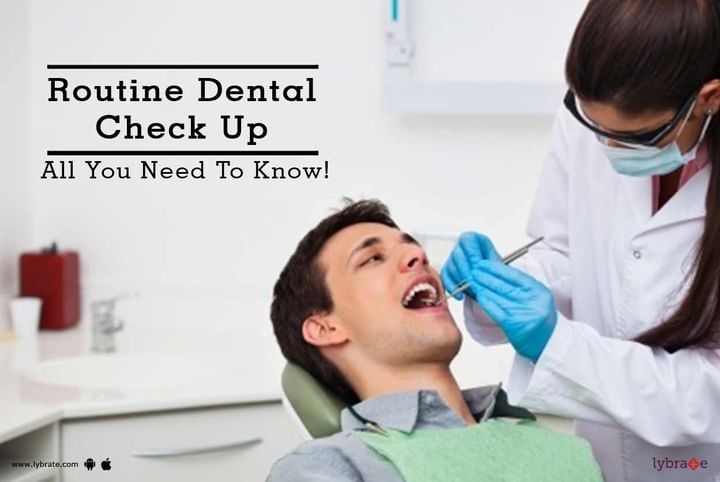Get the App
For Doctors
Login/Sign-up
Last Updated: Oct 23, 2019
BookMark
Report
Routine Dental Check Up - All You Need To Know!
No one likes going to a dentist. People fear a toothache, let alone the treatment. Because of this, a lot of people end up in the dentist's chair only when the pain is unbearable and it is too late to save the tooth.
Just like we have a routine health check up for the rest of our body, our teeth too need to be looked at by a dentist at regular intervals to spot that cavity right when it starts. A regular visit can also allow a quick clean up to keep your teeth shining white.
Here's what to expect during a routine dental check up:
- They'll check your history: Before you actually get to the dentist's chair, your dentist will want to know your entire health background. This is done either by you filling out a detailed form that the receptionist gives you or a junior dentist filling a medical record sheet after asking you questions. You'll specially be asked questions about any pain or symptoms you might be experiencing in your teeth and other things like medications, diabetes, arthritis, pregnancy etc. Each of these problems can have a direct impact on your dental treatment, hence revealing them to your practitioner in advance is very important. Also, be sure to discuss any concerns or anxiety you are experiencing. Most dentists know how to put their patient at ease. All it'll take is a quick chat to put you at ease.
- You'll get a cleaning: Just like the car gets a good wash before the mechanic can have a look, your teeth will get a good scrub before your dentist can address any problem areas. Cleaning involves scraping off built up plaqueand tartar that collects above and below the gum line before flossing between and around every tooth to remove any plaque or food particles that are clinging on. You may also get a final shiny finish for your pearly whites at the end of the cleaning session.
- Your teeth will be examined: Your dentist will now use a metal probe with a small angled mirror to see behind and between teeth and gums, as well as check for the softening of tooth enamel and dentin. If you have a cavity or anything deeper, this is when it will surface. Once the doctor identifies a problem, they suggest the next course of action.
- You may get an X-ray: If the doctor finds a problem that needs fixing, he may ask you to take an X-ray to find out how deep the decay is. You'll be asked to bite down on a piece of plastic while the X-ray machine is placed against your cheek. Where possible, you can check if your doctor can do a digital X-ray which emits 90% less radiation.
- Results and advice: Based on your X-ray results and overall medical condition, the doctor may recommend various procedures to remove your existing decay and prevent new ones.



+1.svg)
